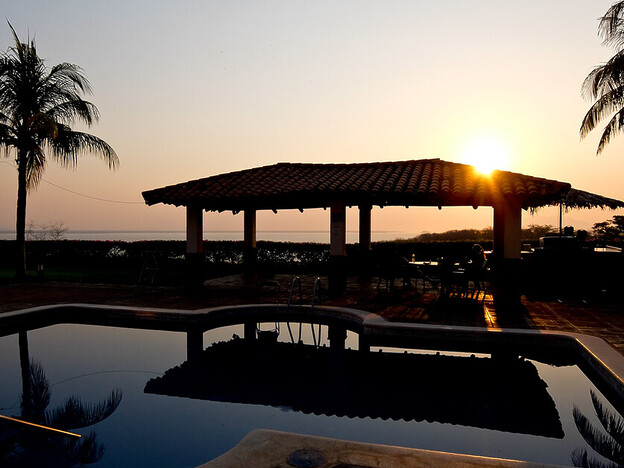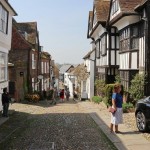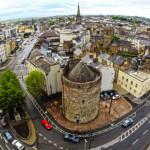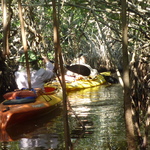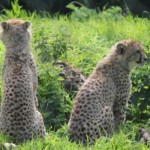Rupert Parker Goes Off The Beaten Track To Explore the Wild East Of El Salvador, a Haven Of Biodiversity.
I’ve visited El Salvador a number of times and thought I’d seen everything. After all it’s the smallest and most densely populated of all the seven Central American countries. But the area around the southeast Pacific coast, known as the “Wild East,” has always been off my radar. Perhaps because it’s surprisingly underdeveloped and tourism is in its infancy.
Over 80 species of migratory birds visit the biosphere reserve of Jiquilisco Bay, feeding on the bay’s rich fish population. The mangrove forests provide a vital habitat for these birds, many of which are threatened or endangered. 90% of the eastern Pacific’s endangered Hawksbill Turtles make their home here, a beacon for conservation.

Island hopping in the Gulf of Fonseca, shared with Honduras and Nicaragua, takes you to unspoilt beaches and volcanic islets. Venture inland where lush forests and hidden waterfalls give way to active volcanoes. The Wild East od El Salvador is a haven of biodiversity.
Las Flores
Three hours’ drive from the capital, San Salvador, Las Flores is one of a number of Surf Cities in El Salvador. The beach here is renowned for its world class waves, breaking onto the black volcanic sands. Of course it’s a magnet for surfers from around the globe, but there’s also safe bathing here. The rugged cliffs and clears waters create a dramatic backdrop for a cool sundowner at one of the beach side cafes.


The town is also famous for its Pupusas, El Salvador’s national dish of stuffed corn tortillas. As well sampling different combinations of ingredients, you can try your hand in making them. My favourite is the Chicharrón Pupusa, filled with a delicious mixture of seasoned ground pork, onion, peppers and cheese. They always come with pickled red onions and spicy sauce on the side.
Gulf of Fonseca
Shared by El Salvador, Honduras, and Nicaragua, the Pacific Gulf of Fonseca covers an area of about 3,200 km², with a coastline extending for 261km. Home to many volcanic islands, such as Zacate Grande and El Tigre in Honduras, it stretches inland for about 65km. Here you’ll find a range of ecosystems including mangrove forest, a critical habitat for migratory birds and other wildlife.

The Gulf’s calm waters are ideal for kayaking, paddle boarding, and boating. A boat trip from La Unión takes me around the islands, stopping at Zacatillo for a swim and a seafood lunch. Fishing enthusiasts will find plenty of opportunities to cast their lines in the fertile waters.
Jiquilisco Bay
Designated as a biosphere reserve, Jiquilisco Bay covers around 400km² stretching from the mouth of the Lempa River to the Jucuarán mountain range. The reserve includes bays, canals, sandy beaches, islands, mangrove forests, and a freshwater lagoon complex. Small fishing communities benefit from the area’s high natural resources and support eco-tourism and conservation.
The real success story is Hawksbill turtles, critically endangered globally and, in the eastern Pacific, numbering fewer than 700 breeding females. In fact, before 2007 they were thought extinct here until the ProCosta conservation organization discovered active nests and feeding grounds. They convinced the locals to protect the eggs and outfitted the turtles with satellite tags to better understand their movements.

I set out on a boat to see ProCosta in action. They cast a large net into the lagoon, then jump in and catch a turtle for tagging, weighing and measuring. It’s an incredible sight as one of these huge beasts is lifted on board then transferred to the beach for analysis.
The Hawksbill is named for its narrow head and sharp bird-like beak, which helps them feed on their favourite meal — sponges. Of the seven marine turtles, they are on the smaller end, ranging between 80kg and reaching up to a metre. They’re hunted for their colourful shells and, as a result, are among one of the most endangered sea turtle species. Now that’s all changed and, in Jiquilisco Bay, the future looks bright.


El Salvador used to be a dangerous place, a stalking ground for violent gangs, but now that’s all changed. Surfers were the first international visitors to come back, attracted by the warm waters and huge waves. In the Wild East, it’s the biodiversity that’s the big attraction – of course birders will love it, but anyone seeking unspoilt nature or just plain peace and quiet won’t be disappointed.
Tell Me More About this Insider Guide To The Wild East Of El Salvador
United flies from the London Heathrow to El Salvador via Houston.
El Salvador Travel has tourist information.
Las Flores Resort is right on the beach.
The Comfort Inn Real La Union is handy for the Gulf of Fonseca.
Puerto Barillas Lodge is in a tranquil location on the edge of Jiquilisco Bay.

